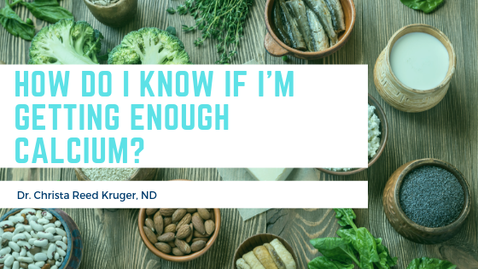How Much Calcium Do I Need?
- Toddlers >700 mg per day
- Kids 4-8 years >1000 mg per day
- Teens 9-18 years >1300 mg per day
- Adults 19-70 years 1000 mg per day
- Adults 70+ years 1300 mg per day
- postmenopause (estrogen loss increases bone loss, and reduces calcium absorption)
- women without menstrual cycles (athletes, those with eating disorders have less estrogen, reduced intake of calcium, or increased excretion of calcium)
- food sensitivities, lactose intolerance, other digestive diseases (poor nutrient absorption)
- imbalanced diet or inadequate intake
- vitamin D deficiency
- prolonged use of medications: laxatives, corticosteroids, proton-pump inhibitors (antacids), statins, diuretics, depoprovera
- kidney disease
- high intake of acidic drinks like pop and coffee, tea or alcohol
We are familiar with the relationship between calcium and bones, where calcium is used to manufacture strong bones. We reach peak bone mass by age 30, so there is an increased need to focus on calcium intake during childhood and early adulthood, to ensure lasting bone structure and also provide adequate stores for calcium. We also use calcium for muscle contractions (including the heart beat) and blood clotting, but also the relaxation of blood vessels. So, even though we aren't making a lot of bone after the age of 30, without adequate calcium intake we borrow calcium from its largest reservoir, our bones, in order to carry out these physiological actions.
It is significant to mention that since we reach our peak bone mass at the age of 30, our focus after this age should be geared towards maintainingbone mass (see below).
Non-Dairy Sources of Calcium
- leafy greens (collards, spinach, kale, bok choy)
- salmon & sardines (canned with bones)
- soy beans
- white beans, black eyes peas, navy beans
- sesame seeds (including tahini)
- almonds
- blackstrap molasses
- fortified milk alternatives (eg. soy, almond, cashew, coconut milk)
- broccoli
- figs
- oranges
- seaweed
Calcium Supplements
There are some things to know about calcium supplementation. Even though calcium used to be recommended right away when women went through menopause (to counter the effects of lower estrogen on bone mass), we've now learned that taking calcium on its own may be detrimental to other systems.
When we take vitamins or minerals, we assume that our body will put the nutrients where we want them to go, but this isn't always the case. When calcium is absorbed in our in our digestive systems, it enters the blood. Without a clear plan in place, calcium gets deposited all over, including our vascular system. The problem is, calcium left within our arteries make them stiff, which can lead to high blood pressure or other cardiovascular concerns. Luckily, there is a solution. Vitamin D helps guide calcium where it needs to go, and so it is important to incorporate D3 into any calcium supplementation plan.
It's also important to ensure you are getting enough magnesium (most likely you're not) in a ratio of at least 1:2 with calcium, to ensure proper muscle function.
One final note on calcium supplementation, it must be taken away from thyroid hormones or medications like Synthroid.
What About Osteoporosis?
When we talk about calcium what we're really concerned with is Osteopenia or Osteoporosis. In order to preserve or encourage bone integrity I have several suggestions. It is so much easier to work on preventing bone loss than it is to try to rebuild bone (although I have worked with people who have seen improvements on their bone scans, or at least maintenance of their T-scores).
- Weight lifting or resistance exercises
- muscle pulling on bone strengthens the bone structure - Eating an antiinflammatory, or alkaline diet (find out more about pH levels, or if you're too acidic here)
- Avoid pop
- the acidity causes bones to leach minerals - Maintain adequate vitamin D level
- ask your family doctor or me for a blood test - Know your risk (in addition to the factors listed above)
- if your mom, grandma, or siblings have had concerns with their bones
- if you've ever had chemotherapy or taken other medications (listed above) for prolonged amounts of time
... it's even more important to start working on your skeletal health now - When you know you have bone loss, I suggest bone support supplements that support their complex architecture. Good products contain calcium in the MCHC form, with other crucial elements of bone health like Vitamin D3, Strontium, Phosphorus, Boron, Manganese, Zinc, Vitamin K2
- Osteo SAP (NFH)
- Ortho Bone (AOR)
- Bone Health (MegaFood)
- Bone Basics (AOR)
Warmly,
Dr. Christa

 RSS Feed
RSS Feed